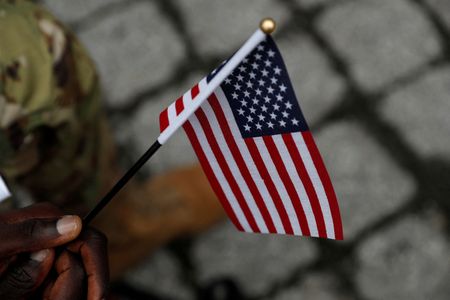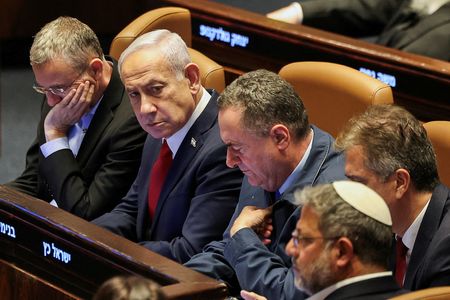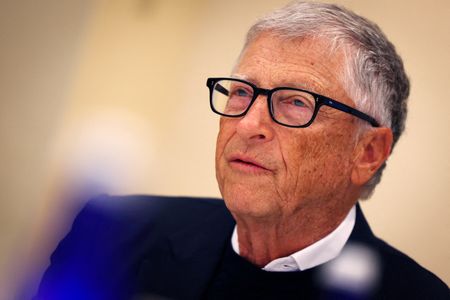MOSCOW (Reuters) -Russian former President Dmitry Medvedev blamed NATO countries on Monday for the abandonment of a moratorium on short- and medium-range nuclear missiles and said Moscow would take further steps in response.
Medvedev, who has been engaging in a exchange of acerbic barbs on social media with U.S. President Donald Trump, made his comments after Russia’s Foreign Ministry said Moscow no longer considered itself bound by the moratorium on the deployment of short- and medium-range nuclear missiles.
“The Russian Foreign Ministry’s statement on the withdrawal of the moratorium on the deployment of medium- and short-range missiles is the result of NATO countries’ anti-Russian policy,” Medvedev posted in English on X.
“This is a new reality all our opponents will have to reckon with. Expect further steps.”
Medvedev, who now serves as deputy head of Russia’s powerful Security Council, did not elaborate.
The U.S. withdrew from the Intermediate-Range Nuclear Forces treaty in 2019, citing Russian non-compliance. Russia has since said it would not deploy such weapons provided that Washington did not do so.
However, Foreign Minister Sergei Lavrov signalled last December that Moscow would have to respond to what he called “destabilising actions” by the U.S. and NATO in the strategic sphere.
“Since the situation is developing towards the actual deployment of U.S.-made land-based medium- and short-range missiles in Europe and the Asia-Pacific region, the Russian Foreign Ministry notes that the conditions for maintaining a unilateral moratorium on the deployment of similar weapons have disappeared,” the ministry said in its statement.
The INF treaty, signed in 1987 by Soviet leader Mikhail Gorbachev and U.S. President Ronald Reagan, eliminated an entire class of weapons — ground-launched missiles with a range of 500 to 5,500 kilometres (311 to 3,418 miles).
Medvedev, seen initially in the West as a potential moderate and reformer, has become one of the most hawkish senior officials on foreign policy in Moscow.
Trump last Friday said he had ordered two nuclear submarines to be moved to “the appropriate regions” in response to remarks from Medvedev about the risk of war between the nuclear-armed adversaries.
(Reporting by Reuters;Editing by Gareth Jones and Bill Berkrot)









